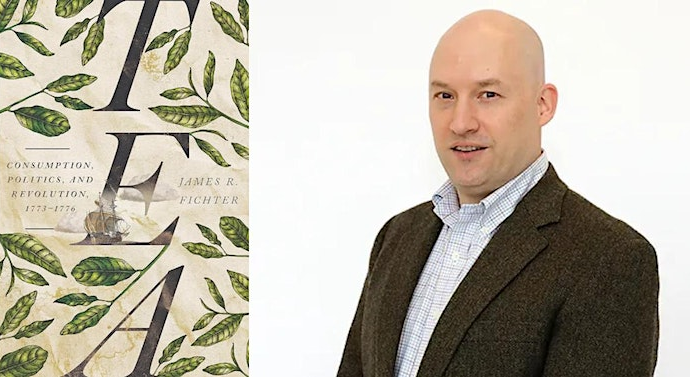
- This event has passed.
The Real Boston Tea Party with James R. Fichter
December 14, 2023 @ 7:00 pm - 8:30 pm
$10 – $15
“Coffee or tea?” This simple question was far from innocent in 1773 – it was a test of political affiliation.
The Boston Tea Party we think we know is a product of post-independence public memory and propaganda. The real Boston Tea Party was very different. It was divisive. And it did not even destroy all the East India Company’s tea. A shipload survived from the William, safely stored in Castle William in Boston Harbor, where it brought havoc on Boston politics until it was consumed in 1775. The Boston Tea Party and survival of the William’s tea reveals colonists’ duelling impulses to destroy or consume tea, with consumerism ultimately triumphing over boycotts by the time of independence.
James Fichter is an historian and associate professor at the University of Hong Kong. His book, Tea: Consumption, Politics, and Revolution, 1773-1776 is just out from Cornell University Press.
$10 members, $15 non-members
Lexington Historical Society
13 Depot Square Lexington, MA 02420
